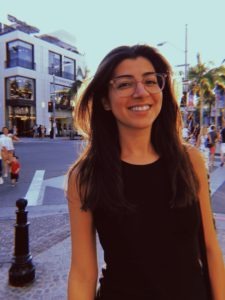Coming from a background in sociology and anthropology, I chose medicine as a career because I believe that health is foundational to all other social justice work. I am pursuing a combined MD/MPH because I aim to put my clinical practice in a broader context—to better understand the systems within which medicine operates. The system is flawed and continues to deny the basic human right of health to those who need it most. The right to control what happens to one’s own body is, in my opinion, one of the most basic human rights, and I cannot think of a more honorable way to spend my life than by helping women feel in control of their bodies, and hopefully also to play a role in helping women feel empowered in their bodies.
That is why I decided to participate in MSFC’s Reproductive Health Externship after my first year of medical school. I knew this experience would allow me to further my commitment to reproductive justice by providing me the opportunity to start actually seeing procedures, an important step towards gaining the concrete skills necessary to provide abortions and to do the work that I so deeply believe in.
During my RHE, I spent the first part of this summer at a family health clinic in the Bronx learning about reproductive justice and abortion under the supervision of some of the most inspiring and bad-ass women I have ever met. More than any other time in my life, I feel like I know what I want to be when I grow up: I want to be just like them—doctors who listen, who inform, who support, who care, and who treat individuals with respect, with compassion, and with dignity.
In a lot of ways I feel like medicine has been this thing that I’m doing, that’s still somewhat separate from the rest of my identity. And then on my first day in the Bronx, I ended up in a room full of residents having a conversation about the many messages that women receive from different parts of our lives telling us that our bodies are wrong, and talking openly about the ways that doctors both contribute to and can combat against this and help normalize the female body. I saw a presentation by residents working to change systems to be more gender inclusive. I attended a lecture about birth justice and the enormous racial disparity in maternal mortality that exists in this country and especially in NYC. Being surrounded by doctors who are similarly committed to social justice was a real game changer for me, and I honestly didn’t know that medicine could be like this.
In observing abortions and conversations surrounding sex and birth control, I watched women of all ages make careful decisions about their bodies, in conversation with their doctors about what would be the best choice for them and their lifestyles. I watched women make the type of decision that no one ever wants to make about terminating a pregnancy—older women and young teenagers, women alone and women with partners, each with her own story, her own reasons, and a heavy heart. And I watched them make that decision in an environment free of judgment and full of excellent care.
My second week there, I saw my first abortion procedure. I have worked for a surgeon so I’m used to procedures, and one of the residents gave me a really comprehensive explanation of what was about to happen and warned me that it could be bloody. Once the fellow, the resident, and I were in the room, however, my role changed from shadowing medical student to emotional support/hand-holder. It was difficult, it was unpleasant, it was bloody. The patient sobbed. I held her hand, I rubbed her shoulder. Abortion is not pretty, it is not pleasant, it is not easy. But it is absolutely necessary that women have access to it. And in that moment it became clear that I absolutely must know how to do this, that in these moments, I want women to be in rooms like this one where they are safe and supported.
Spending time in this clinic proved that a type of medicine I had only imagined is actually possible, and if it’s happening in the Bronx I have to believe that it could be a reality elsewhere. I don’t know how I got so lucky, but I sure am overwhelmed with gratitude for the opportunity to witness such incredible doctoring. I knew that it would be a learning experience but I didn’t expect it to have such an impact on my future and on my career. I came away from my RHE absolutely committed to becoming an abortion provider and with a new sense of focus, along with some really incredible role models and mentors.
